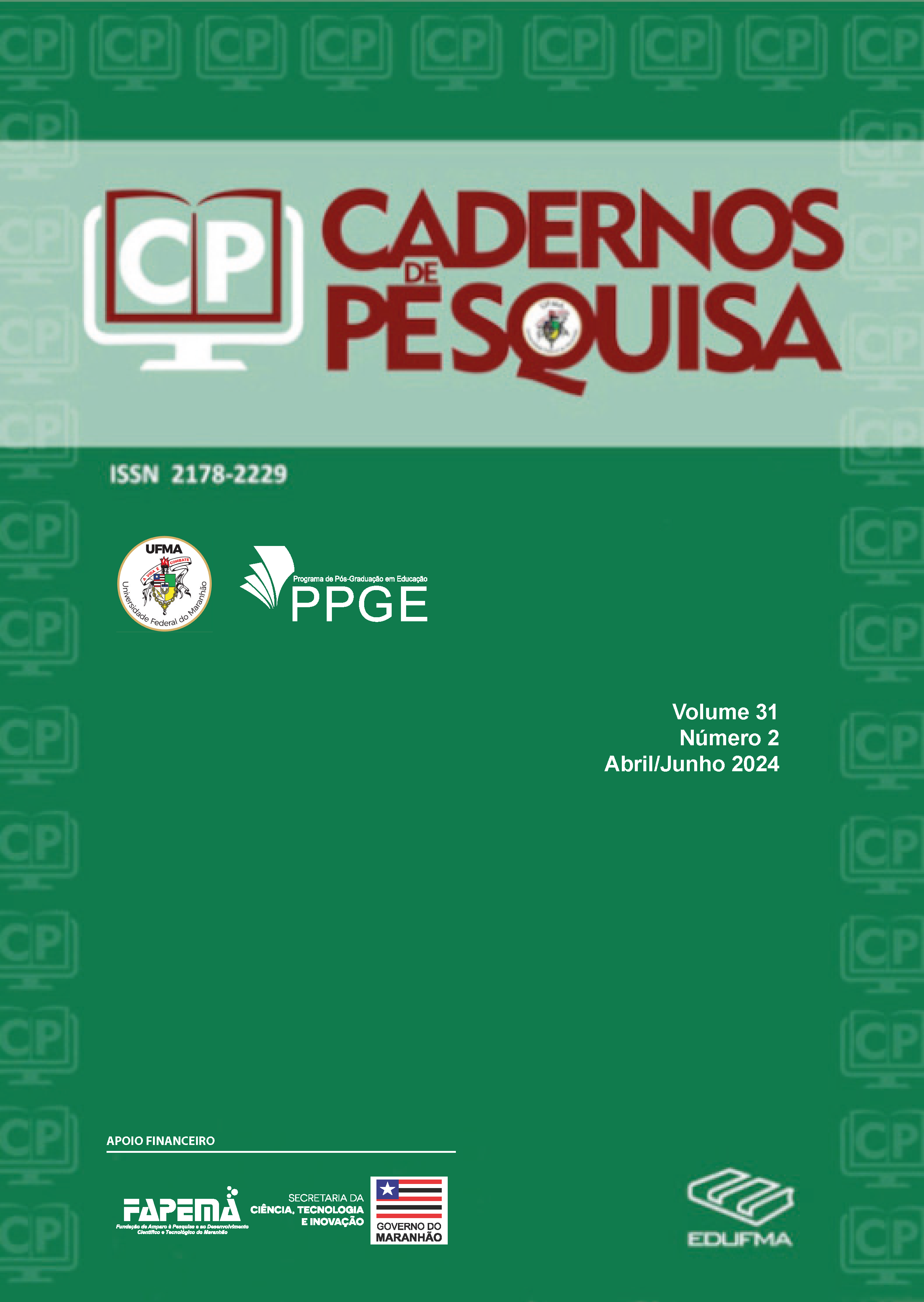Researching Intimate Violence Against Women From Feminist Ethnography
DOI:
https://doi.org/10.18764/2178-2229v31n2.2024.25Keywords:
feminist ethnography, intimate violence, transformative knowledgeAbstract
Researching intimate violence against women using feminist ethnography is a difficult and contentious undertaking for both the researcher and the participants as feminist ontology and epistemology are at odds with the mainstream sociological understandings of theory, method and methodology. The topic of intimate violence is not only emotional and traumatic; doing an ethnographic study of it is fraught with tensions that are fundamental to creation of a women centered knowledge that is subjective. This article attempts to explain feminist understandings of ontology, epistemology, and ethics and to make clear the nature of these tensions in feminist ethnographic research, writing and praxis. It elaborates, through illustrations derived from doctoral research of the author on intimate violence against women, how researching the theme of violence is a challenging and rewarding exercise when it is based on the lived experiences of women with whom the researcher identifies. The results are transformative for the researcher and participants and contribute to the praxis of human rights.
Downloads
References
ABU‐LUGHOD, Lila. Can there be a feminist ethnography? Women & Performance: Women & Performance: a journal of feminist theory. Volume 5, nº1. 1990, p. 7–27. https://doi.org/10.1080/07407709008571138.
ADKINS, Lisa. Passing on feminism. European Journal of Women’s Studies, Vol.11, nº 4. 2004, p. 427-444. https://doi.org/10.1177/1350506804046813.
ALVESSON, Mats; SKOLDBERG, Kaj. Reflexive methodology: New vistas for qualitative research. London: Sage. 2000. 350p.
BARRETT, Michelle; PHILLIPS, Anne (Eds.) Destabilizing theory: contemporary feminist debates.: Stanford: Stanford University Press.1992. 236p.
BURTON, Barbara. Brutality and bureaucracy: Human rights, intimate violence and the role of feminist ethnography. American Anthropological Association. PoLar: Political and Legal Anthropology Review. Vol. 23, nº1 2000. p. 138-147. 2000.
DAVIS, Dána-Ain What is a feminist activist ethnographer to do? American Anthropologist, Vol. 116, nº. 2. 2014. 413–415. https://doi.org/10.1111/aman.12112.
DE BEAUVOIR, Simone. The second sex. Tradução por H.M. Parshley. Harmondsworth: Penguin. 1972 [1949]. 768p.
FOUCAULT, Michel. The Foucault reader. Paul Robinow (Eds) New York: Pantheon Books.1984. 400p.
GHOSH, Sanjukata. Feminist ethnography. In, Nancy A. Naples et. al. (Eds.)The Wiley Blackwell Encyclopedia of Gender and Sexuality Studies. 2016. https://doi.org/10.1002/9781118663219.wbegss765.
HARDING, Sandra. Introduction: Is there a feminist methodology? In Sandra Harding (Ed.), Feminism and methodology. Bloomington: Indiana University Press. p.1-14. 1988. 208p. https://doi.org/10.1520/STP20024S.
HAWKINS, Darren; HUMES, Melissa Human rights and domestic violence. Political Science Quarterly. Oxford University Press. Vol.117, nº2, p 231-257. 2002. https://www.jstor.org/stable/798182.
HESSE-BIBER, Sharlene Nagy; PIATELLI, Deborah. The feminist practice of holistic reflexivity. In: Sharlene J. Hesse-Biber (Ed.) Handbook of feminist research: Theory and praxis. Thousand Oaks, CA: Sage. Capitulo 27, 2ª ed. p 557–582. 2012. 792 p. https://doi.org/10.4135/9781483384740
KRISTEVA, Julia Powers of horror: An essay on abjection. Tradução por Leon S. Roudiez: Columbia University Press. [1941] 2024
LAWLESS, Elaine J. Reciprocal ethnography as feminist and emergent. Bloomington: Indiana University Press. 2019. 214 p. https://doi.org/10.2307/j.ctvpb3z54
LINABARY, Jasmine R; CORPLE, Danielle J; Cheryl Cooky. Of wine and whiteboards: Enacting feminist reflexivity in collaborative research. Qualitative Research. Vol. 21, nº 5, p. 719-735. 2021. https://doi.org/10.1177/1468794120946988.
MANJOO, Rashida. Special guest contribution: Violence against women as a barrier to the realization of human rights and the exercise of citizenship, Feminist Review. Vol. 112, p. 11-26. 2016. Thousand Oaks CA: Sage. https://www.jstor.org/stable/44987246.
MASLOW, Abraham H. The farther reaches of human nature. New York: Viking Compass Book Press. 1972. 423p.
Autor. Marital violence: A feminist understanding of violence in intimate relations. Thesis (PhD in Social Science) School of Social Sciences. Tata Institute of Social Sciences, Mumbai, India. 2005. Disponível em: http://hdl.handle.net/10603/22316. Acesso em: 5 de junho 2024.
MOHANTY, Chandra Talpade. Under western eyes: Feminist Scholarship and colonial discourses. In Chandra Talpade Mohanty; Ann Russo e Lourdes Torres (Eds.) Third world women and the politics of feminism, Capitulos 1, p.51-80. Bloomington: Indiana University Press. 1991. 352p.
ONG, Aihwa. Colonialism and modernity: Feminist re-presentations of women in non-western societies. In Kum Kum Bhavnani (Ed.) Feminism and race, Capitulo 10. p.108–118. Oxford: Oxford University Press. 2001. 559 p.
SCHROCK, Richelle D. The methodological imperatives of feminist ethnography. Journal of Feminist Scholarship, Vol. 5, nº 5, p. 54-60. 2013. Disponível em: https://digitalcommons.uri.edu/jfs/vol5/iss5/5. Acesso em: 5 de junho 2024.
SEGAL, Lynne. Why feminism: Gender, Psychology, Politics. Cambridge: Polity Press. 1999. 296p.
SHIPMAN, Marten. The limitations of social research. 4ª Ed. London: Longman. 1988.
SLIFE, Brent D.; WILLIAMS, Richard N. What’s behind the research? Discovering hidden assumptions in the behavioral sciences. Thousand Oaks, CA: Sage Publications. 1995. 264p.
SPIVAK, Gayatri Chakravorty. The Spivak reader: Selected works of Gayatri Chakravorty Spivak. Landry Donna e Gerald Maclean (Eds.) New York: Routledge. 1996. 344p.
STACEY, Jackie. Can there be a feminist ethnography? Women's Studies International Forum, Vol.11, nº1, 22-27. 1988. https://doi.org/10.1016/0277-5395(88)90004-0
STACEY, Jackie. Untangling feminist theory. In: In: Richardson, Diane e Robinson, Vitoria (Eds) Introduction to Women's Studies. London: Palgrave Macmillan. Capítulo 3, p. 49-73. 1993. https://doi.org/10.1007/978-1-349-22595-8_3
STANLEY, Liz (Ed). Feminist praxis: Research, theory, and epistemology in feminist sociology. Routledge Library Editions: Feminist Theory. Vol. 13.1990. 282p.
STANLEY, Liz; WISE, Sue. Breaking out: Feminist consciousness and feminist research. New York: Routledge & Kegan Paul Books.1983. 210p.
STANLEY, Liz; WISE, Sue. Method, methodology and epistemology in feminist research process. In Feminist praxis: Research, theory, and epistemology in feminist sociology. Routledge Library Editions: Feminist Theory. Vol. 13.1990. 282p.
Sweet, Paige L. Who knows? Reflexivity in feminist standpoint theory and Bourdieu. Gender and Society. Vol. 34, nº 6, p. 922–950. 2020). . Disponível em: https://www.jstor.org/stable/26967176. Acesso em: 5 de junho 2024.
VISHWESWARAN, Kamala. Defining feminist ethnography. In Kamala Vishweswaran. Fictions of feminist ethnography. Capítulo 2, p. 17–27. Minnesota: University of Minnesota Press. 1994. 224 p.
VISHWESWARAN, Kamala. Histories of feminist ethnography. Annual Review of Anthropology, Vol. 26, nº1 p. 591-621. 1997. http://dx.doi.org/10.1146/annurev.anthro.26.1.591
Downloads
Published
How to Cite
Issue
Section
License
Copyright (c) 2024 Cadernos de Pesquisa

This work is licensed under a Creative Commons Attribution 4.0 International License.
A Cadernos de Pesquisa está licenciada com a Licença Creative Commons Atribuição 4.0 Internacional.



















